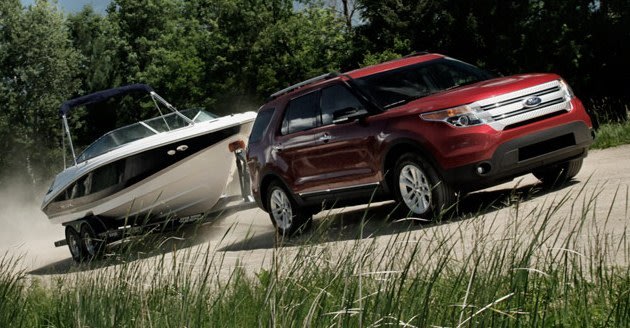
Does a smaller, turbocharged engine make a gas-burning SUV nature friendly?
Electric vehicles are all the rage these days, and everyone from?Toyota to?Cadillac and?BMW are in on the action. American automaker Ford already has a couple of hybrid vehicles on the market, and is poised to release the all-electric Ford Focus variant later this year, but the company is also doing its part to make its gas engines a bit more nature friendly. Enter the 2012 Ford Explorer EcoBoost, a 4-door SUV with a plethora of cargo room and a sensitivity to gas prices.
The idea behind the EcoBoost line of vehicles is that by replacing the traditionally large-displacement engines with smaller, turbocharged versions, performance can remain the same while the motor uses less gasoline. In practice, the EcoBoost Explorer makes good use of the technology and its boosted V6 gets 20mpg in the city and 28mpg on the highway ? roughly 3 mpg more than its V8 counterpart. Along with gas consumption, performance takes a small dip as well, and fuel chugging V8 boasts roughly 50 additional horsepower.
The car gurus at Autoblog recently?went hands-on with the all-new Explorer and report that while the increase in fuel economy is welcome, the lack of certain features and a $995 premium for the EcoBoost package are a turnoff. Potential buyers in snowy climates will be disappointed to learn that all-wheel drive isn't an option for the fuel-sipping 6-cylinder, and towing capacity also takes a hit.
In the end, the EcoBoost technology makes the Explorer line a slightly less severe crime against?nature, but it may not be green enough to benefit from its moniker. Electric vehicles are undoubtedly the future, and asking consumers to pay extra for a smaller gasoline engine because it carries a green-sounding name might not benefit buyers, or Mother Nature.
(Source)
More from Tecca:
sean avery honda recall honda recall platypus platypus pandora jewelry ax
No comments:
Post a Comment